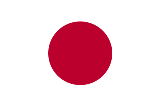CUSTOMS REGULATIONS
- Household goods and personal effects can be imported duty free subject to the requirements below. Notify the Destination Agent several weeks in advance of any move involving a diplomat.
DOCUMENTS REQUIRED TO APPLY FOR KANGI FORM IN JAPAN:
- Passport Copy (photo page)
- Packing list
- Airway Bill copy/ Ocean Bill of Lading copy with correct number of pieces subscribed
- The shipper / shipper’s representative must apply for the Kangi Form (Tax Exemption) at the Ministry of Foreign Affairs. The following information will be required:
- Estimated arrival date to Japan Port of Deliver
- Vessel name and volume/ weight of shipment
- Unless the Kangi Form is issued, household goods will be cleared as a Foreign Citizen with tax & duties assessed accordingly. The Kangi Form can take several weeks to be issued by the Ministry.
AIR SHIPMENT
- Detailed valued inventory is required
Sample
Packing List
Template Packing List for
Medicine and Cosmetics
Template Packing List for
New Items
Template Packing List for
Alcohol
Template Packing List for
All Household Goods
PETS
- Japan has different regulations depending on the type of animal and where it is coming from. Different regulations apply to diplomats importing pets. Please advise us in advance so that we may confirm.
- As the regulations/requirements do change, please access below site for up to date information: http://www.maff.go.jp/aqs
RESTRICTED ITEMS
- Plants with or without soil, fresh fruits and vegetables (a quarantine certificate is required prior to Customs examination).
- To import fresh meat including poultry, sausage, ham, bacon or any other meat products requires an animal health certificate issued by the animal health authority of the exporting country.
- Bones, eggs, fat, blood, skins, hides, pelts, Fur, hair, feathers, down, horns, antlers, hooves etc. (subject to an animal quarantine inspection)
- Medicines and cosmetics (e.g., pharmaceutical products; amount for use during a period of 2 months; quasi-drugs: 24 pieces)
- Firearms (a permit is required)
- To import Rice, Beans, Grains, Dried Vegetables, Dry Flowers, Spices, Coffee Beans, Herbs / Spices, the Ministry of Agriculture has added a requirement for a Phytosanitary Certificate to be issued prior to the importation of said items. Without the certificate, items cannot be imported and may cause delays and extra port charges.
- Electric powered / power-assisted bicycles & kickboards are highly regulated in Japan. These items will attract a customs exam, may be classified separate to household goods, and barred from import into the country without the proper licenses. Please seek guidance from your import coordinator should you have any questions.
- Drones: We’d like to include some note of caution. The use of drones are highly regulated in Japan under the Drone Act. While regulations currently allow the import of drones for personal use, they are a hot topic items as they are seen as potential weapons.
PROHIBITED ITEMS
- Opium, ether, narcotic drugs and utensils for opium smoking, and stimulants (including Vicks Inhalers and Sudafed)
- Psychotropic substances (excluding those designated by an ordinance of the Ministry of Health and Welfare)
- Counterfeit, altered, or imitated articles of coins, paper money, banknotes, or securities
- Books, drawings, carvings, and any other article which injures public security or morals (obscene or immoral materials, pornography, etc.)
- Articles which infringe upon rights in patents, utility-models, designs, trademarks, copyrights, neighboring rights, or layout design of integrated circuits
- Firearms (pistols, rifles, machine guns, etc.) and ammunition (bullets) thereof, and parts of firearms
- Weapons (swords, daggers, bows and arrows, etc. with blades more than 15 centimeters in length prohibited)
- For further information, please reference http://www.customs.go.jp/english/summary/prohibit.htm.